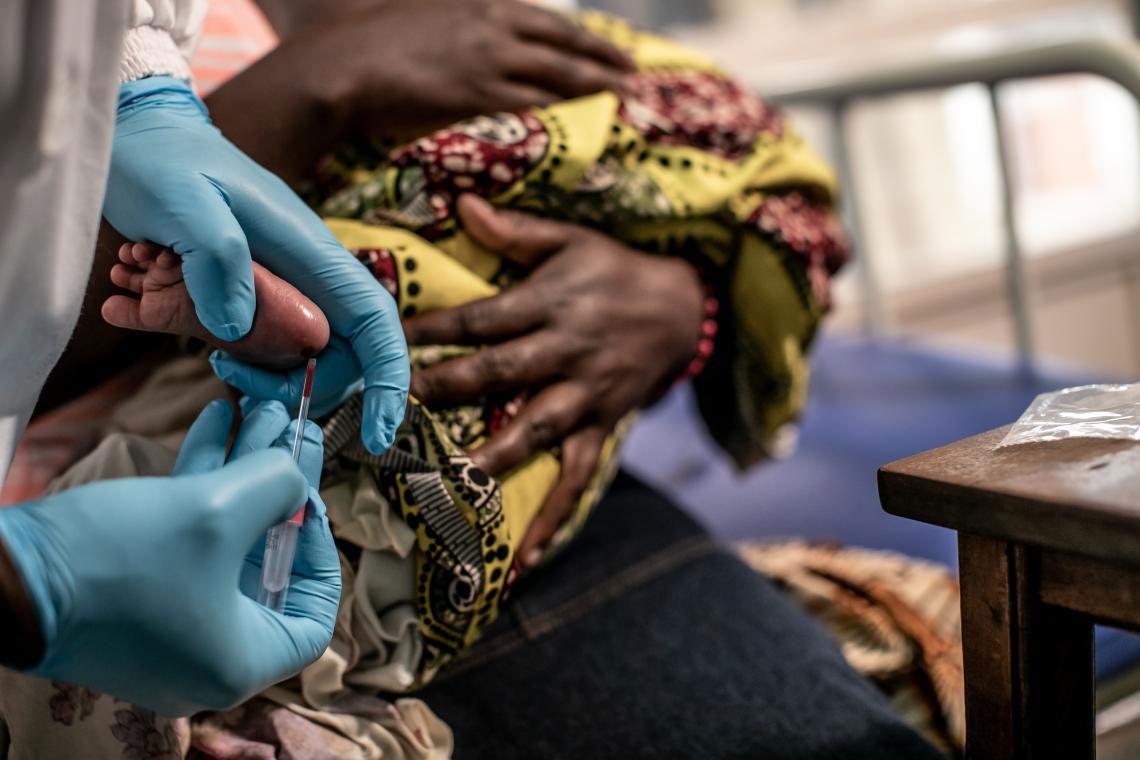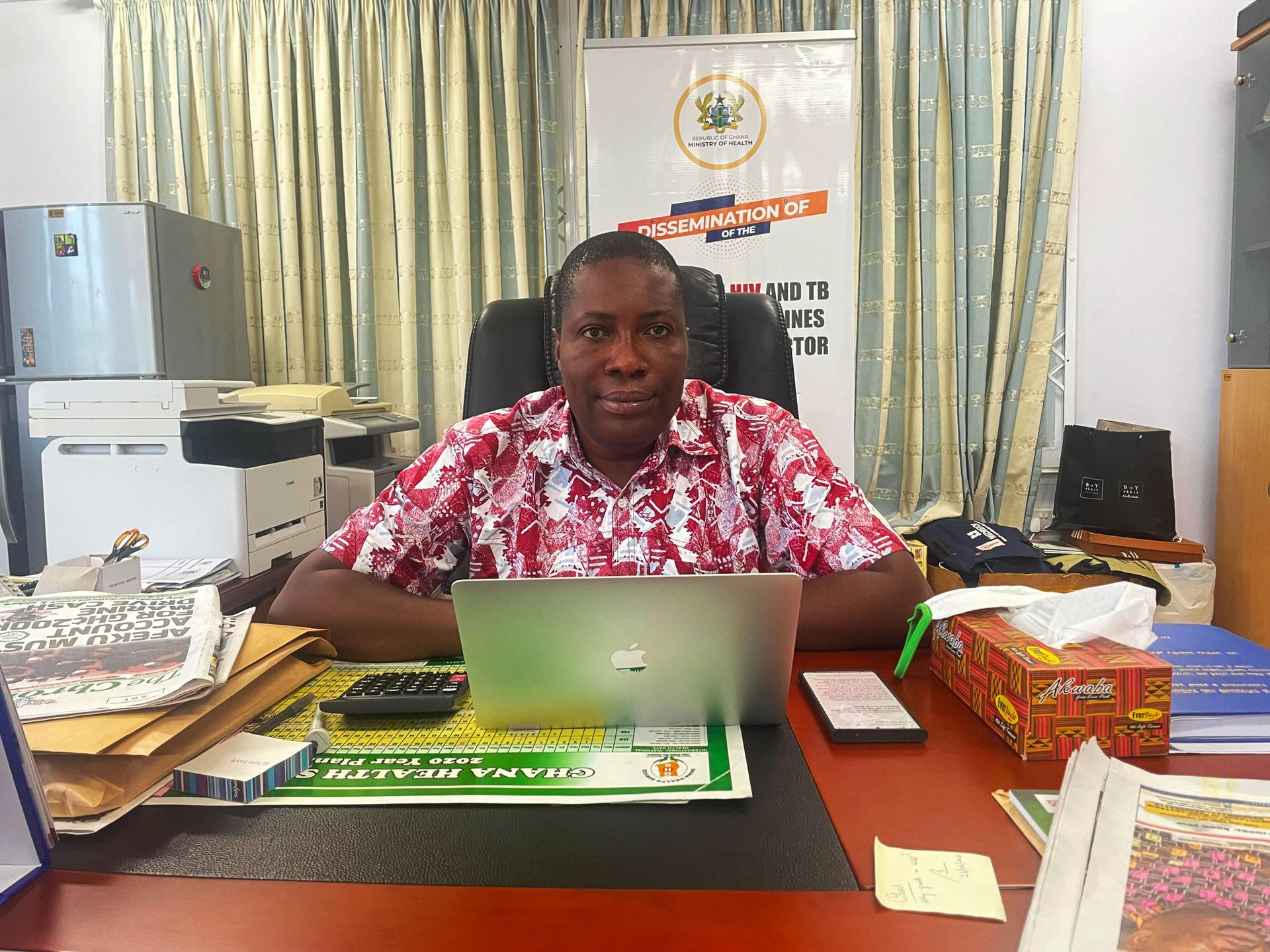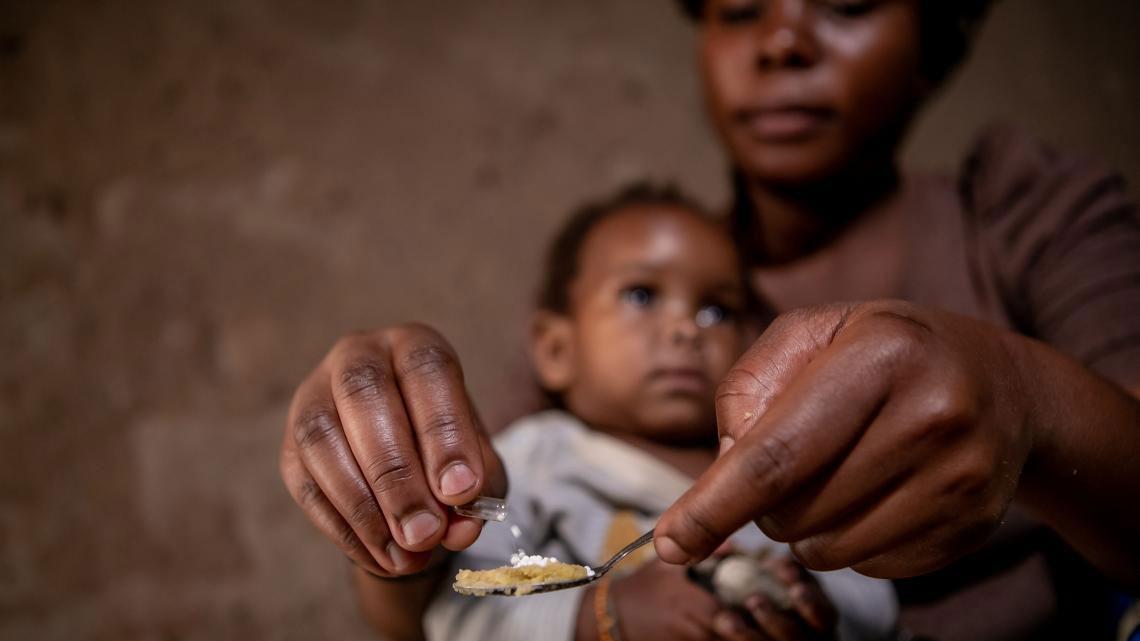Editor’s note: This story was supported by the National Geographic Society’s COVID-19 Emergency Fund for Journalists.
Leticia Asiamah, who lives in a single-room wooden shack in Ghana’s capital, Accra, is 5-months pregnant. The mother of two has been living with HIV for nearly 10 years. She survives on antiretroviral drugs (ARV) but is currently almost out of stock.
“Sometimes even when I get to the health facilities, I see that the attendants are under so much pressure, yet there is very little they can do to help. But this is the only medication that keeps us alive and so it is really frightening when we can’t access them.”
“Sometimes even when I get to the health facilities, I see that the attendants are under so much pressure, yet there is very little they can do to help. But this is the only medication that keeps us alive and so it is really frightening when we can’t access them,” she said.
Health experts say pregnant women like Asiamah are supposed to take HIV medicines throughout pregnancy. If access to the medicine is interrupted, the mother risks passing the virus to her baby, and could develop serious health issues herself.
For the first time in 20 years, the fight against the HIV and AIDS epidemic has reversed course. Around the world, there were three times as many new infections than predicted for 2020 — a total of 1.5 million, according to a recent report released by the Global Fund organization.
Related: Researchers say reducing HIV cases is priority in global AIDS fight
According to the United Nations, many children acquired HIV in 2020 during the height of the COVID-19 pandemic. Due to lockdowns and school closures, children have less access to HIV prevention programs, as well as testing that could quickly identify when someone has the disease before they spread it. And even before the pandemic, pediatric HIV medication was in particularly short supply.

Ghana’s National AIDS Control Program says the pandemic has also adversely impacted production of the life-saving medicines and their supply and transportation, leading to increases in cost. Program manager Stephen Ayisi-Addo said this has eroded Ghana’s progress on its goal to end HIV/AIDS.
Related: AIDS treatment has progressed, but without a vaccine, suffering still continues
“We are working very hard to improve the pipeline, the supply chain, especially for the exposed babies. In fact, there are scheduled orders that are coming. In fact, there are some as we speak now at the port that are being cleared.”

“We are working very hard to improve the pipeline, the supply chain, especially for the exposed babies. In fact, there are scheduled orders that are coming. In fact, there are some as we speak now at the port that are being cleared.”
The great majority of HIV infections in Ghana at the end of 2020 were recorded among women. Asiamah is among more than 5,000 HIV-positive pregnant women grappling with the current scarcity of ARV medications.
ARV shortages are not new, but the latest shortage has been extremely critical, not only for pregnant women, but also the nearly 30,000 children living with HIV in Ghana.
Related: How disease is used to deny entry at US borders
These medicines, as well as the COVID-19 vaccine, can’t come fast enough for people living with HIV.
Asiamah’s two other children are HIV-negative. But she fears the worst could happen to her third unborn child if the ARV shortage is not fixed.
“I have only a few tablets left. What is going to happen to me after a few days? Sometimes I feel very weak and I am afraid I am going to die or even infect the innocent baby in my womb. Something needs to be done about this,” Asiamah said.
In the Ashanti regional town of Obuasi in southern Ghana, the situation is a double whammy for a widow with HIV-positive twins. Due to stigma, she does not want to be identified, but laments that for some time now, several efforts to get pediatric drugs for her babies have proven futile.
“Sometimes I roam so many facilities before I get the medication. And the supply is often for just a few days. At some point I stopped roaming because I am a widow and the transportation cost was becoming too much for me. But weeks later, we started having skin rashes and developing sores on the mouth.”
“Sometimes I roam so many facilities before I get the medication. And the supply is often for just a few days. At some point I stopped roaming because I am a widow and the transportation cost was becoming too much for me. But weeks later, we started having skin rashes and developing sores on the mouth,” she said.
The latest report from UNAIDS warns that if the drug shortage persists, about 50% of children living with HIV will die before they reach their second birthday.
The mother of twins says she’s constantly praying to God to let her keep her babies.
“I am afraid now that when I go for a review, the results will show poor suppression levels. I am always on my knees asking God to keep us alive, because I feel the children don’t deserve this. At least we should be given supplies that will last longer,” she said.
Dr. Meg Doherty, the World Health Organization’s director of HIV, Hepatitis and STI programs, says the situation is dire.
“During the COVID pandemic, we have seen reduction in access to prevention services, testing services for HIV. Considering that people living with HIV have a 30% increased risk of death if they are hospitalized, people living with HIV should be prioritized for early COVID vaccines.”
“During the COVID pandemic, we have seen reduction in access to prevention services, testing services for HIV. Considering that people living with HIV have a 30% increased risk of death if they are hospitalized, people living with HIV should be prioritized for early COVID vaccines,” she said.
Related: New album lifts up the voices of women in Ghana’s ‘witch camps’
The national president for the Ghana Network of Persons Living with HIV, Elsie Ayeh, also worries that the worst brunt of COVID-19 is being borne by the most vulnerable in society — the same communities that carry a higher burden of HIV.
“If we are able to manufacture ARVs in-country, all those delays, the shortages, and looking for tax waivers, it will reduce the cost of us accessing ARVs. It will also be a means of earning income, because then we could export ARVs to neighboring countries.”

“If we are able to manufacture ARVs in-country, all those delays, the shortages, and looking for tax waivers, it will reduce the cost of us accessing ARVs. It will also be a means of earning income, because then we could export ARVs to neighboring countries.”
Winnie Byanyima, UNAIDS executive director, had a similar message when she addressed a high-level meeting on AIDS at the UN headquarters in New York this year:
“Let us ensure that all medicines which can prevent deaths of people living with HIV are manufactured by multiple producers, including producers in the global South. We also need to reform failing rules of intellectual property so that access to life-saving science is no longer dependent on the passport you hold.”
In the interim, Byanyima wants the international community to urgently institute measures to mitigate the impacts of higher costs and scarcity of ARVs.
“We are not just interconnected, we are inseparable. We cannot end AIDS in one country or one continent, we can only end AIDS everywhere,” she said.
We want to hear your feedback so we can keep improving our website, theworld.org. Please fill out this quick survey and let us know your thoughts (your answers will be anonymous). Thanks for your time!
